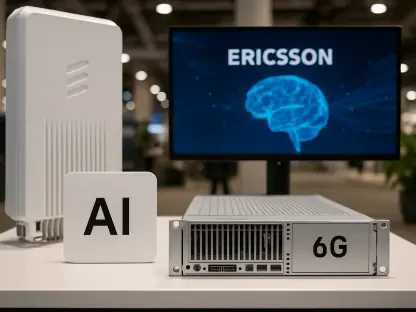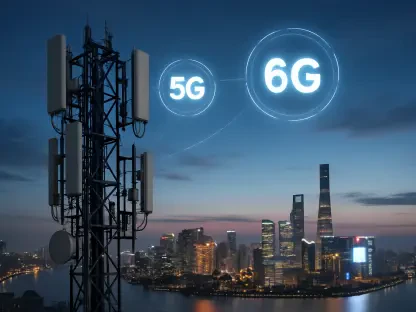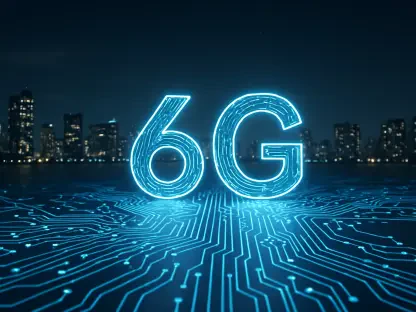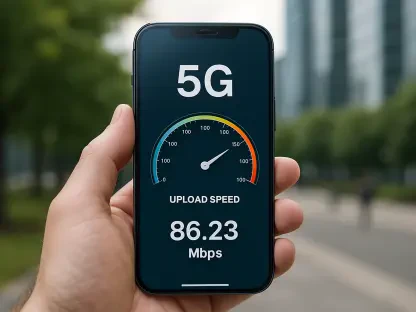As the UK approaches its full digital switchover from the Public Switched Telephone Network (PSTN) to Voice over Internet Protocol (VoIP), the focus is increasingly turning toward ensuring connectivity for vulnerable landline users during power outages. This mass transition, planned to be complete within the next two years, has brought about significant concern for those reliant on traditional telecommunication services, especially during emergencies. To alleviate these concerns, telecom companies like Vodafone have been leading efforts to introduce advanced backup battery solutions designed to ensure that these users remain connected even when the power goes out.
Vodafone’s Upgraded Backup Battery Unit
Vodafone has recently introduced a new and improved backup battery unit (BBU) that promises to surpass the minimum requirements set by Ofcom, the UK’s communications regulator, and significantly enhance the reliability of broadband services during power outages. Where Ofcom mandates a minimum of one hour of battery life, Vodafone’s BBU offers an impressive four to seven hours of battery-powered broadband. This extended duration is not arbitrary; it has been meticulously designed to cover the average UK power cut, which typically lasts just over two-and-a-half hours. By providing a greater margin of safety, the new BBU model ensures that users can stay connected for longer periods during potential power outages.
Unlike previous models, Vodafone’s upgraded BBU powers both the Optical Network Terminal (ONT) and the Wi-Fi hub. This dual functionality is crucial because it enables continued internet connectivity throughout the household. Another notable feature of this new BBU is its ability to automatically preserve 25% of its charge, offering additional peace of mind to users by ensuring that some battery life remains, even after overnight power cuts. For those who rely heavily on this service, such as individuals using telecare devices to contact relatives or emergency services, this feature is particularly valuable.
Accessibility and Cost Considerations
Understanding that vulnerable groups should not be burdened with additional costs for essential services, Vodafone is offering the new BBU free of charge to ‘landline-dependent’ customers. This initiative aligns with the larger goal of ensuring that those who are at greater risk are given special consideration in the transition to digital networks. The primary focus here is on individuals who rely on telecare devices, as uninterrupted connectivity can be a matter of life and death in emergency situations. By making this device accessible without charge, Vodafone alleviates potential financial burdens and reinforces its commitment to customer care.
For other customers who do not fall under the ‘landline-dependent’ category, the BBU is available for £150. This pricing strategy ensures that the technology is still accessible to a broader audience, without being prohibitively expensive. Besides, Vodafone has plans to extend the availability of this unit to its business customers and to offer it wholesale to other Internet Service Providers (ISPs). By doing so, Vodafone is not only improving its market share but is also setting a higher industry standard in terms of customer safety and service reliability during power outages.
Government and Industry Support
Vodafone’s robust efforts have garnered significant support from both governmental and industry figures. Rob Winterschladen, Vodafone UK’s consumer director, and Chris Bryant, the telecoms and data minister, have publicly endorsed the upgraded BBU as a significant step toward addressing the challenges posed by the digital switchover. Bryant emphasized the government’s dedication to working alongside telecom companies to prioritize the safety of vulnerable customers. This collaborative approach underscores a unified strategy to ensure that the transition to digital networks does not leave the most vulnerable people at risk.
By embracing technological advancements like the new BBU, Vodafone and its peers are proactively addressing the concerns surrounding the digital switchover. As vulnerable customers have expressed anxiety regarding the shift from PSTN to VoIP, Vodafone’s latest innovation demonstrates a practical and customer-oriented solution. Moreover, the new BBU is not just a utilitarian device; it has been designed to be both more capable and visually appealing. This reflects a broader industry trend where aesthetics and functionality go hand in hand to meet consumer expectations.
Future Implications and Industry Standards
As the United Kingdom nears its complete transition from the Public Switched Telephone Network (PSTN) to Voice over Internet Protocol (VoIP), there is a growing emphasis on maintaining connectivity for vulnerable landline users during power outages. This major transition is scheduled to be finalized within the next two years, raising significant concern for individuals who depend heavily on traditional telecommunication services, especially in emergency situations. Addressing these worries, telecom companies like Vodafone are at the forefront, spearheading initiatives to implement advanced backup battery solutions. These solutions are specifically crafted to ensure that users who rely on landlines will stay connected even when the electricity fails. The goal is to provide a reliable and uninterrupted service for those who are at the highest risk, thus ensuring their safety and well-being during critical times when communication is most vital.









